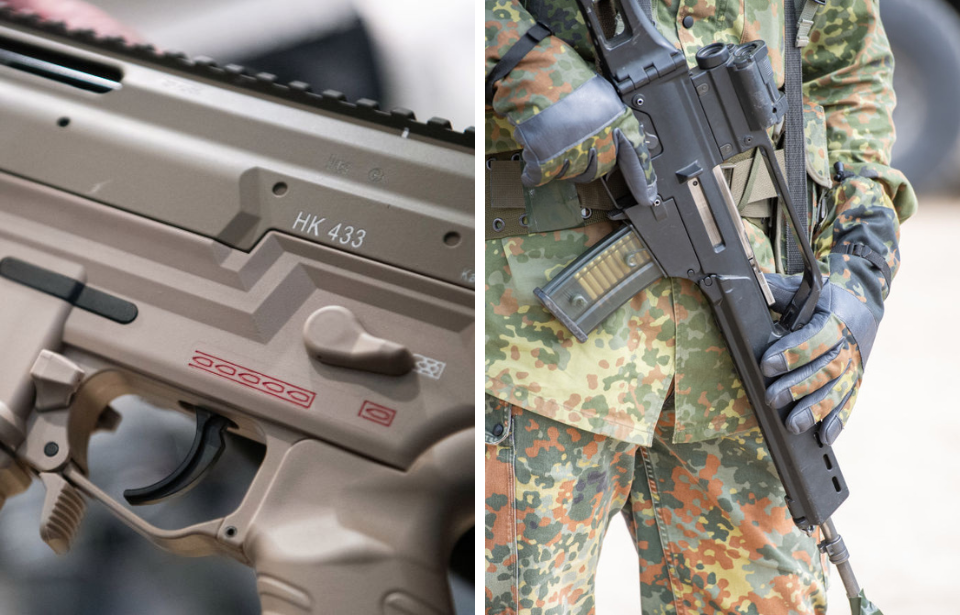Heckler & Koch, the esteemed German arms manufacturer, adopted an innovative strategy in developing one of its most legendary rifles. Introduced in the 1990s, the G36 was designed to replace the heavier 7.62×51 mm G3 battle rifle. Its adaptable features and advanced design ushered in a new chapter in military assault rifles.
A new competitor has recently emerged, capturing the attention of experts seeking cutting-edge weapon technology: the HK443. This latest model combines the modular, streamlined design of the G36 with the firepower of the AR-15.
The G36 was a top contender in European infantries
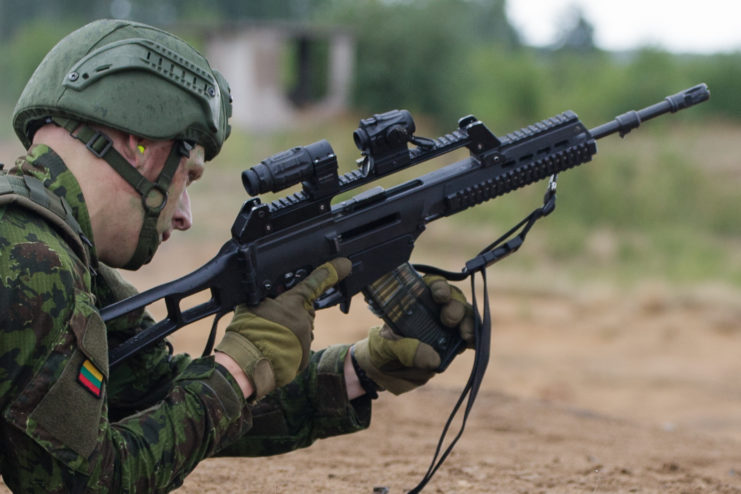
Before 2012, the G36 stood as a favored rifle that was extensively equipped across Europe by infantry, special forces and security units who relied on its steadfast reliability. In pursuit of a lighter and more cost-effective firearm adaptable to the new standard 5.56 mm x 45 NATO cartridge, Germany took advantage of the proven effectiveness of gas-operated mechanisms and a rotating bolt-action design. This fusion resulted in a modern, versatile weapon introduced into service in 1996.
However, over the past two decades, technological advancements surged, rendering the G36 obsolete by 2012. Notably, significant accuracy issues surfaced once the weapon overheated, sparking the quest for a successor.
The HK433 wasn’t picked, but still gained attention
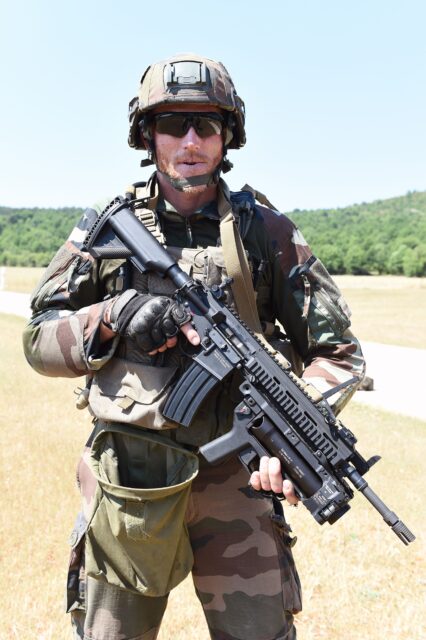
Three potential successors to the G36 emerged: the Heckler & Koch HK416, the Heckler & Koch HK433, and the Haenel MK556. In the end, the HK416A8 was selected as the new standard-issue rifle, beginning in 2022. Nevertheless, the alternative HK model, the HK433, has garnered significant attention from weapons experts.
The HK433 is the future of assault rifles
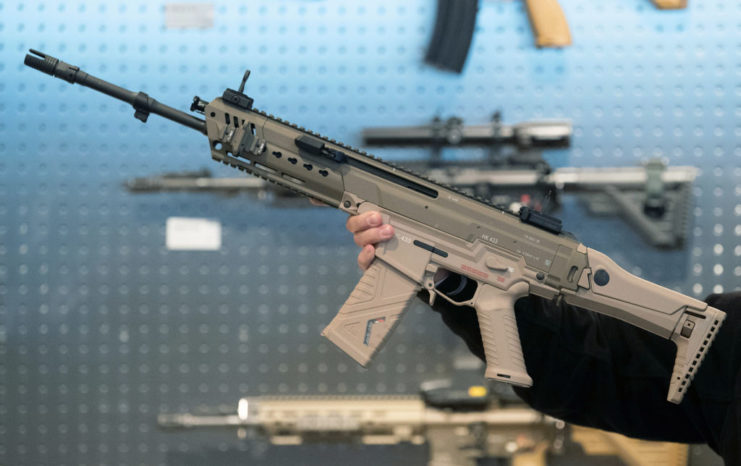
The HK433 rifle, which has been considered as a potential successor to the G36, incorporates elements from some of the finest automatic rifles globally. This adaptable and compact weapon offers users a choice between two operational modes: those of the M16/M4/AR-15 or the G36.
With six barrel length options ranging from 11 to 20 inches and available in two colors – black and “flat dark earth” – the HK433 caters to a variety of preferences. Its ambidextrous design enables both right-handed and left-handed users to operate it with ease, requiring no tools.
The HK433 has many options for customization
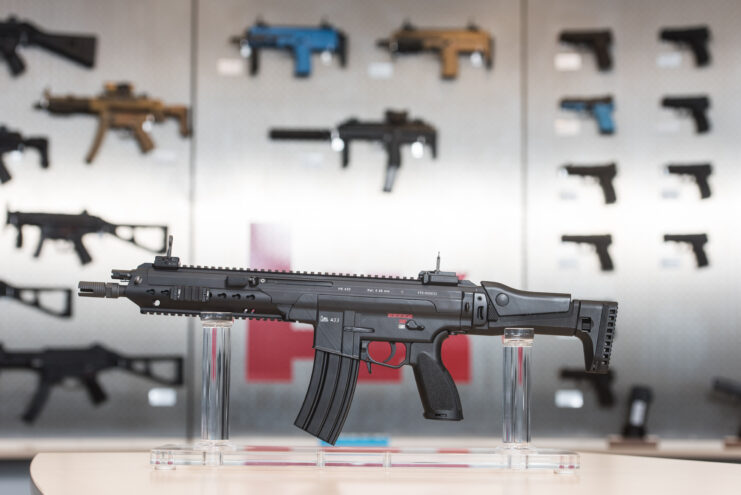
Equipped with a round counter and a foldable and retractable buttstock with an adjustable cheek rest, the HK433 offers extensive customization opportunities. Accessories such as a training bolt group, bayonet, suppressor, drum magazine, brass catcher, blank firing attachment, and either a forward grip or bipod further enhance its versatility.
As Heckler & Koch writes, “It doesn’t matter at all whether you are right or left-handed or have trained on a G36 / HK416 weapon system or AR-15 platform: The HK433 is the solution for every scenario imaginable. Maximum functional reliability with intuitive handling combined with maximum modularity, accuracy, and weapon safety.”
The HK433 can be disassembled without any tools
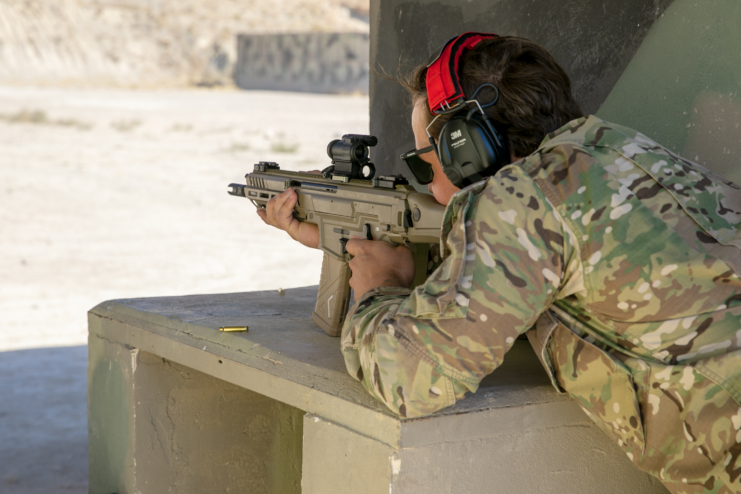
Want War History Online‘s content sent directly to your inbox? Sign up for our newsletter here!
